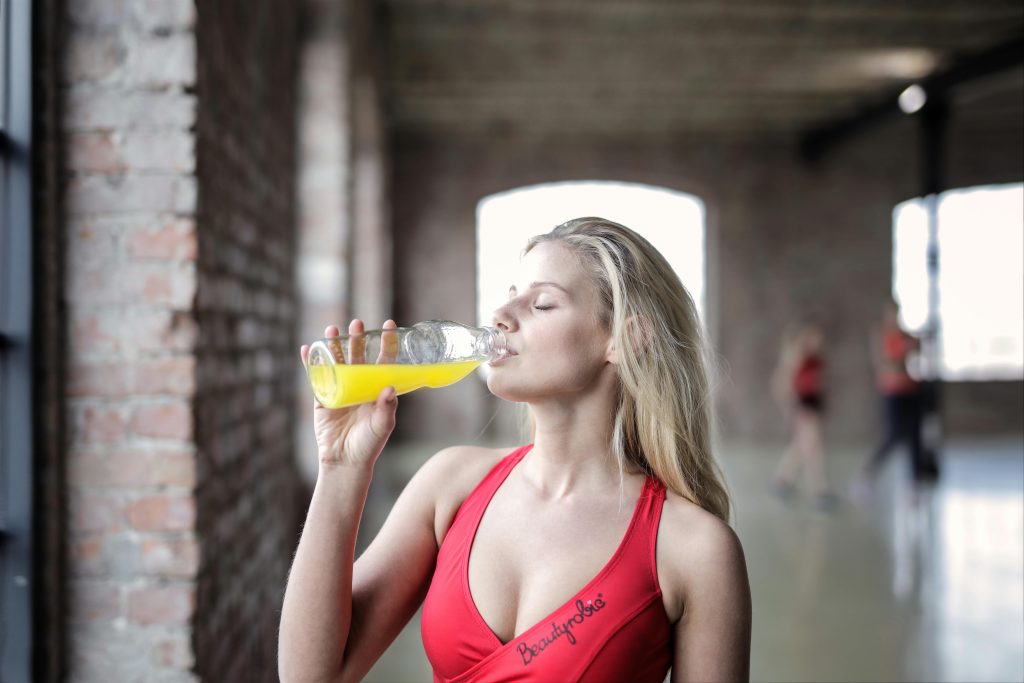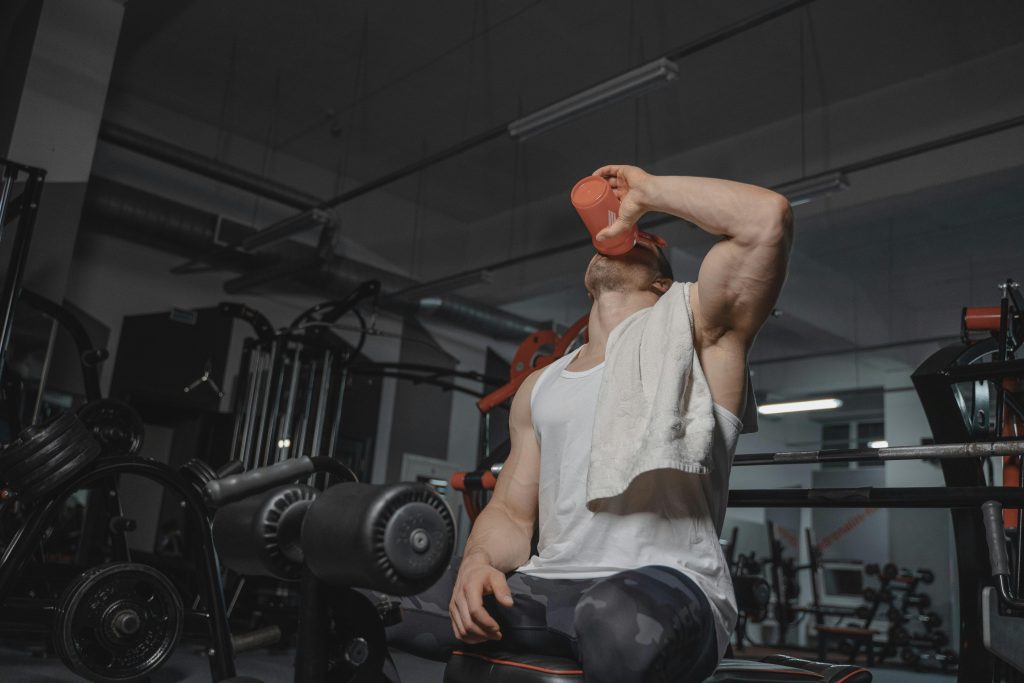Sports Nutrition for Athletic Performance: The Complete Guide to Fueling Your Success

Sports Nutrition for Athletic Performance: The Complete Guide to Fueling Your Success.
Athletic performance isn’t just about training hard and pushing your limits in the gym or on the field. What you put into your body plays an equally crucial role in determining how well you perform, recover, and adapt to training. Understanding the fundamentals of sports nutrition can make the difference between reaching your peak potential and falling short of your goals.
Whether you’re a weekend warrior, competitive athlete, or fitness enthusiast, proper nutrition strategies can enhance your energy levels, improve recovery times, and help you maintain consistent performance throughout your training cycles. This comprehensive guide explores the essential principles of fueling your body for optimal athletic achievement.

Understanding the Foundation of Sports Nutrition
Sports nutrition encompasses the strategic consumption of nutrients to support physical activity, enhance performance, and facilitate recovery. Unlike general nutrition guidelines, athletic nutrition requires careful consideration of timing, quantity, and quality of nutrients based on training demands, competition schedules, and individual metabolic needs.
The human body operates like a high-performance engine during exercise, requiring specific fuel types at different intensities and durations. Understanding how your body processes and utilizes various nutrients during different phases of training allows you to optimize your nutritional approach for maximum benefit.
Research consistently demonstrates that well-planned nutrition strategies can improve performance by 5-15%, which often represents the difference between winning and losing in competitive sports. Moreover, proper nutrition significantly reduces injury risk, enhances immune function, and supports long-term athletic longevity.
Macronutrients: The Building Blocks of Athletic Success
Carbohydrates: Your Primary Energy Source
Carbohydrates serve as the primary fuel source for high-intensity exercise and are crucial for maintaining blood glucose levels during prolonged activities. The body stores carbohydrates as muscle glycogen and liver glycogen, providing readily available energy for athletic performance.
Athletes engaging in moderate to high-intensity training should consume 6-10 grams of carbohydrates per kilogram of body weight daily. For a 70-kilogram athlete, this translates to 420-700 grams of carbohydrates per day, significantly higher than sedentary individuals require.
The timing of carbohydrate consumption is equally important as the quantity. Consuming carbohydrates before exercise helps maximize glycogen stores, while post-exercise carbohydrate intake accelerates glycogen replenishment and supports recovery processes.
Complex carbohydrates such as whole grains, fruits, and vegetables should form the foundation of an athlete’s carbohydrate intake, providing sustained energy release and essential micronutrients. Simple carbohydrates have their place during and immediately after intense training sessions when rapid energy delivery is required.
Protein: Building and Repairing Muscle Tissue
Protein plays multiple roles in sports nutrition, including muscle protein synthesis, enzyme production, immune function support, and serving as an energy source during prolonged exercise. Athletes have significantly higher protein requirements than sedentary individuals due to increased muscle protein turnover and repair needs.
Current research suggests athletes should consume 1.6-2.2 grams of protein per kilogram of body weight daily, with some evidence supporting higher intakes for athletes in intense training phases or those seeking to build muscle mass. The quality of protein sources matters significantly, with complete proteins containing all essential amino acids being preferred.
Protein timing strategies can enhance training adaptations and recovery. Consuming 20-25 grams of high-quality protein within two hours post-exercise maximizes muscle protein synthesis rates. Additionally, distributing protein intake evenly throughout the day, consuming approximately 20-30 grams per meal, optimizes protein utilization.
Excellent protein sources for athletes include lean meats, poultry, fish, eggs, dairy products, legumes, and plant-based options like quinoa and hemp seeds. Many athletes find protein supplements convenient for meeting their elevated protein needs, particularly around training sessions.
Fats: Essential for Hormone Production and Energy
Dietary fats often receive less attention in sports nutrition discussions, yet they play crucial roles in athletic performance and health. Fats serve as an important energy source during low to moderate-intensity exercise, support hormone production, facilitate vitamin absorption, and provide essential fatty acids.
Athletes should aim for 20-35% of their total daily calories from fat sources, emphasizing unsaturated fats while limiting saturated and trans fats. Omega-3 fatty acids deserve special attention due to their anti-inflammatory properties and potential benefits for recovery and cognitive function.
Quality fat sources include avocados, nuts, seeds, olive oil, fatty fish, and coconut oil. The timing of fat consumption is less critical than carbohydrates and protein, but athletes should generally avoid high-fat meals immediately before intense training sessions due to slower digestion rates.
Hydration: The Often Overlooked Performance Factor
Proper hydration represents one of the most critical aspects of sports nutrition, yet it’s frequently underestimated by athletes at all levels. Even mild dehydration can significantly impair performance, reduce cognitive function, and increase perceived exertion during exercise.
Athletes should begin each training session well-hydrated and implement strategies to maintain fluid balance throughout exercise. Pre-exercise hydration involves consuming 16-24 ounces of fluid 2-3 hours before activity, followed by 8 ounces 15-30 minutes before starting.
During exercise lasting longer than 60 minutes, athletes should consume 6-8 ounces of fluid every 15-20 minutes. For activities exceeding 60-90 minutes, sports drinks containing carbohydrates and electrolytes become beneficial for maintaining performance and supporting hydration.
Post-exercise rehydration requires consuming 150% of fluid losses, accounting for continued sweating and increased urine production. Monitoring body weight before and after exercise provides an accurate method for assessing fluid losses and guiding rehydration strategies.
Pre-Exercise Nutrition Strategies
The pre-exercise meal sets the foundation for optimal performance by ensuring adequate energy stores, maintaining blood glucose levels, and preventing hunger during training or competition. The timing and composition of pre-exercise nutrition depend on individual tolerance, exercise duration, and intensity.
For meals consumed 3-4 hours before exercise, athletes should focus on familiar, easily digestible foods rich in carbohydrates with moderate protein and minimal fat and fiber. This approach maximizes glycogen stores while minimizing gastrointestinal distress during activity.
Closer to exercise (1-2 hours prior), smaller snacks emphasizing easily digestible carbohydrates work best. Examples include bananas with honey, oatmeal with fruit, or sports drinks for those preferring liquid options.
Some athletes benefit from caffeine consumption 30-60 minutes before exercise, as research demonstrates performance improvements in endurance activities, high-intensity sports, and cognitive function. However, individual tolerance varies significantly, and athletes should test caffeine strategies during training rather than competition.
During-Exercise Fueling for Extended Activities
For exercise sessions lasting longer than 60-90 minutes, consuming carbohydrates during activity can maintain blood glucose levels, spare muscle glycogen, and sustain performance. The recommended intake ranges from 30-60 grams of carbohydrates per hour, depending on exercise duration and intensity.
Sports drinks provide a convenient source of carbohydrates and electrolytes, but athletes can also use energy gels, sports bars, or whole food options like dates or bananas. The key is finding tolerable options that provide consistent energy without causing digestive issues.
Athletes should practice their during-exercise nutrition strategies extensively during training to identify optimal products, timing, and quantities. Competition day is never the time to experiment with new fueling approaches.

Post-Exercise Recovery Nutrition
The post-exercise period represents a critical window for optimizing recovery, replenishing energy stores, and supporting training adaptations. Proper recovery nutrition should address three primary goals: rehydration, glycogen replenishment, and muscle protein synthesis stimulation.
The concept of the “anabolic window” suggests consuming nutrients within 30-60 minutes post-exercise maximizes recovery benefits. While this window may be less narrow than previously believed, consuming a combination of carbohydrates and protein soon after exercise remains beneficial, particularly for athletes training multiple times per day.
An ideal post-exercise snack contains a 3:1 or 4:1 ratio of carbohydrates to protein, providing approximately 1-1.2 grams of carbohydrates per kilogram of body weight and 20-25 grams of high-quality protein. Chocolate milk has gained popularity as a recovery beverage due to its ideal macronutrient profile and convenience.
Micronutrients: Small Amounts, Big Impact
While macronutrients receive most attention in sports nutrition discussions, micronutrients play equally important roles in athletic performance and health. Vitamins and minerals serve as cofactors in energy metabolism, support immune function, facilitate oxygen transport, and maintain bone health.
Athletes face increased micronutrient needs due to higher metabolic rates, increased nutrient losses through sweat, and greater oxidative stress from intense training. Key nutrients of concern include iron, calcium, vitamin D, B vitamins, vitamin C, and antioxidants.
Iron deficiency represents one of the most common nutritional deficiencies among athletes, particularly female endurance athletes. Iron plays crucial roles in oxygen transport and energy metabolism, making adequate intake essential for optimal performance. Regular monitoring of iron status through blood testing helps identify deficiencies early.
Calcium and vitamin D work together to support bone health, muscle function, and immune system regulation. Athletes, particularly those in weight-category sports or those training indoors, may have elevated risks for vitamin D deficiency.
Supplements in Sports Nutrition
The supplement industry targeting athletes is massive, but the vast majority of products lack scientific evidence supporting their performance claims. Athletes should prioritize a well-balanced diet as their primary nutrition strategy, using supplements only to address specific needs or deficiencies.
Evidence-based supplements with performance benefits include creatine monohydrate, caffeine, beta-alanine, and nitrates. Creatine monohydrate stands out as one of the most researched and effective supplements for high-intensity, short-duration activities.
Optimum Nutrition Micronized Creatine Monohydrate represents an excellent choice for athletes seeking to enhance power output and training capacity. This unflavored, pure creatine powder dissolves easily in water and provides 5 grams of creatine monohydrate per serving. The micronized formula ensures better mixability and absorption compared to regular creatine products.
Research consistently demonstrates that creatine supplementation can increase muscle creatine stores by 10-40%, leading to improved performance in repeated high-intensity efforts, increased training volume capacity, and enhanced recovery between sets. The standard protocol involves taking 3-5 grams daily, with or without a loading phase.
Athletes should be cautious of multi-ingredient supplements, as they often contain ineffective doses of active ingredients or untested combinations. Single-ingredient supplements allow for better control over dosing and reduce the risk of consuming banned substances.
Periodizing Nutrition for Training Phases
Just as training programs periodize to optimize adaptations and performance, nutrition strategies should align with different training phases and goals. This approach, known as nutrition periodization, involves adjusting macronutrient intake, timing, and strategies based on training demands and objectives.
During high-volume base training phases, athletes should emphasize adequate carbohydrate intake to support glycogen stores and recovery. Protein needs may be elevated during strength-building phases to support muscle protein synthesis and adaptation.
Competition phases require fine-tuning nutrition strategies to optimize performance while maintaining energy availability. This might involve carbohydrate loading protocols for endurance events or specific hydration strategies for events in hot environments.
Off-season periods provide opportunities to address nutritional deficiencies, experiment with new foods and strategies, and potentially adjust body composition goals. However, athletes should avoid dramatic dietary changes that could negatively impact health or future performance.
Special Considerations for Different Sports
Different sports place varying demands on the body’s energy systems, requiring tailored nutrition approaches. Endurance athletes emphasize carbohydrate availability and during-exercise fueling strategies, while strength and power athletes focus more heavily on protein intake and creatine supplementation.
Team sport athletes face unique challenges due to intermittent high-intensity efforts throughout prolonged competitions. Their sports nutrition strategies must support both aerobic and anaerobic energy systems while maintaining cognitive function for decision-making.
Weight-category sport athletes often struggle with balancing performance nutrition needs with weight management requirements. These athletes require careful planning to maintain energy availability while achieving competition weight safely.
Practical Implementation Tips
Implementing effective sports nutrition strategies requires planning, preparation, and consistency. Athletes should start by assessing their current eating patterns and identifying areas for improvement rather than making dramatic changes overnight.
Meal planning and preparation become essential skills for busy athletes juggling training, work, and other commitments. Preparing meals and snacks in advance ensures access to appropriate nutrition choices when time is limited.
Working with a qualified sports nutritionist can provide personalized guidance based on individual needs, preferences, and goals. These professionals can help athletes navigate the complex world of sports nutrition while avoiding common pitfalls and misconceptions.
Tracking food intake, at least temporarily, helps athletes understand their current nutrition patterns and identify gaps in their fueling strategies. Various smartphone apps make this process more convenient than traditional food diaries.

Conclusion: Fueling Your Athletic Excellence
Sports nutrition represents a powerful tool for enhancing athletic performance, supporting recovery, and maintaining long-term health. While the principles may seem complex, the foundation remains relatively simple: consume adequate energy from quality sources, time nutrients strategically around training, stay properly hydrated, and maintain consistency in your approach.
Remember that nutrition strategies should complement, not complicate, your training program. Start with the basics, make gradual improvements, and seek professional guidance when needed. With patience and persistence, optimized nutrition can help unlock your athletic potential and support your journey toward peak performance.
The investment in proper sports nutrition pays dividends not only in immediate performance improvements but also in long-term athletic longevity and overall health. By treating your body as the high-performance machine it is and providing it with premium fuel, you set yourself up for sustained success in your athletic pursuits.


2 thoughts on “Sports Nutrition for Athletic Performance: The Complete Guide to Fueling Your Success”
Comments are closed.